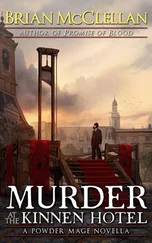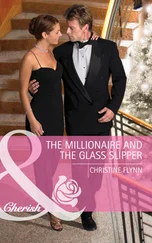In her hotel days, Vincent had always associated money with privacy—the wealthiest hotel guests have the most space around them, suites instead of rooms, private terraces, access to executive lounges—but in actuality, the deeper you go into the kingdom of money, the more crowded it gets, people around you in your home all the time, which was why Vincent only swam at night. In the daytime there was the house manager, Gil, who lived with his wife, Anya, in a cottage by the driveway; Anya, who was the cook, supervised three young local women who kept the house clean and did laundry and accepted grocery deliveries and such; there was also a chauffeur, who had an apartment over the garage, and a silent groundskeeper, who maintained everything outside of the house. Every time Vincent looked up, someone was nearby, sweeping or dusting or talking on the phone to the plumber or trimming a hedge. It was a lot of people to contend with, but at night the staff retreated into their private lives and Vincent could swim in peace without feeling watched from every window.
“I’m glad you’re enjoying the pool,” Gil said. “The pool design consultant spent so much time on it, and I swear no one ever used it before you got here.”
—
She was in the pool when she first met Jonathan’s daughter, Claire. It was a cool evening in April, steam rising from the water. She’d known Claire was coming over that evening, but she hadn’t expected to surface and find a woman in a suit staring at her through the steam like a goddamned apparition, standing perfectly still with her hands clasped behind her back. Vincent gasped aloud, which in retrospect wasn’t endearing. Claire, who had obviously just come from the office, was a very corporate-looking woman in her late twenties.
“You must be Vincent.” She picked up the folded towel that Vincent had left on a lawn chair and extended it in a get-out-of-the-pool kind of way, so Vincent felt that she had no choice but to climb the ladder and accept the towel, which was irritating because she’d wanted to swim for longer.
“You must be Claire.”
Claire didn’t dignify this with a response. Vincent was wearing a fairly modest one-piece swimsuit but felt extremely naked as she toweled off.
“Vincent’s an unusual name for a girl,” Claire said with a slight emphasis on girl that struck Vincent as uncalled-for. I’m not that young, Vincent wanted to tell her, because at twenty-four she didn’t feel young at all, but Claire was possibly dangerous and Vincent hoped for peace, so she answered in the mildest tone possible.
“My parents named me after a poet. Edna St. Vincent Millay.”
Claire’s gaze flickered to the ring on Vincent’s finger. “Well,” she said, “we can’t choose our parents, I suppose. What kind of work do they do?”
“My parents?”
“Yes.”
“They’re dead.”
Claire’s face softened a little. “I’m sorry to hear that.” They stood staring at one another for a beat or two, then Vincent reached for the bathrobe that she’d left on a deck chair, and Claire said, sounding more resigned than angry now, “Did you know you’re five years younger than me?”
“We can’t choose our ages either,” Vincent said.
“Ha.” (Not a laugh, just a spoken word: ha. ) “Well, we’re all adults here. Just so you know, I find this situation absurd, but there’s no reason we can’t be cordial with one another.” She turned away and walked back into the house.
Ghosts
Vincent’s mother had read a lot of poetry, having formerly been a poet herself. When Edna St. Vincent Millay was nineteen years old, in 1912, she began writing a poem called “Renascence” that Vincent must have read a thousand times in childhood and adolescence. Millay wrote the poem for a competition. The poem didn’t win, but it nonetheless carried an electric charge that transported her from the drudgery of New England poverty to Vassar College, from there into the kind of bohemia that she’d dreamed of all her life: a different kind of poverty, the Greenwich Village–variety, poverty but with late-night poetry readings and dashing friends.
“The point is she raised herself into a new life by sheer force of will,” Vincent’s mother had said, and Vincent wondered even at the time—she would have been about eleven—what that statement might suggest about how happy Vincent’s mother was about the way her own life had gone, this woman who’d imagined writing poetry in the wilderness but somehow found herself sunk in the mundane difficulties of raising a child and running a household in the wilderness instead. There’s the idea of wilderness, and then there’s the unglamorous labor of it, the never-ending grind of securing firewood; bringing in groceries over absurd distances; tending the vegetable garden and maintaining the fences that keep the deer from eating all the vegetables; repairing the generator; remembering to get gas for the generator; composting; running out of water in the summertime; never having enough money because job opportunities in the wilderness are limited; managing the seething resentment of your only child, who doesn’t understand your love of the wilderness and asks every week why you can’t just live in a normal place that isn’t wilderness; etc.
What Vincent’s mother probably wouldn’t have imagined: a life—an arrangement —in which Vincent wore a wedding ring but was not actually married. “I want you close,” Jonathan said, at the beginning, “but I just don’t want to get married again.” His wife, Suzanne, had died only three years earlier. They never said her name. But while he didn’t want to marry Vincent, he did feel that wedding rings created an impression of stability. “In my line of work,” he said, “managing other people’s money, steadiness is everything. If I take you out to dinner with clients, it’s better for you to be a beautiful young wife than a beautiful young girlfriend.”
“Does Claire know we’re not married?” Vincent asked the night Claire appeared by the pool. By the time Vincent had come in and showered, Claire had already left. She found Jonathan alone in the south living room with a glass of red wine and the Financial Times.
“Only two people in the world know that,” he said. “You and me. Come here.” Vincent came to stand before him in the lamplight. He ran his fingertips down the length of her arm, and then turned her around and slowly unzipped her dress.
—
But what kind of man lies to his daughter about being married? There were aspects of the fairy tale that Vincent was careful not to think about too much at the time, and later her memories of those years had an abstracted quality, as if she’d stepped temporarily outside of herself.
Accomplices
They had cocktails at a bar in Midtown with a couple who’d invested millions in Jonathan’s fund, Marc and Louise from Colorado. At that point Vincent had only been in the kingdom of money for three weeks, and the strangeness of her new life was acute.
“This is Vincent,” Jonathan said, his hand on her lower back.
“It’s so lovely to meet you,” Vincent said. Marc and Louise were in their forties or fifties, and after a few more months with Alkaitis she would come to recognize them as typical of a particular western subspecies of moneyed people: as wealthy as their counterparts in other regions, but prematurely weathered by their skiing obsession.
“It’s so great to meet you,” they said, and Louise caught sight of Vincent and Jonathan’s rings in the round of handshakes. “Oh my goodness, Jonathan,” she said, “are congratulations in order?”
“Thank you,” he said, in such a convincing tone of bashful happiness that for a disorienting moment Vincent entertained the wild thought that they were somehow actually married.
Читать дальше












